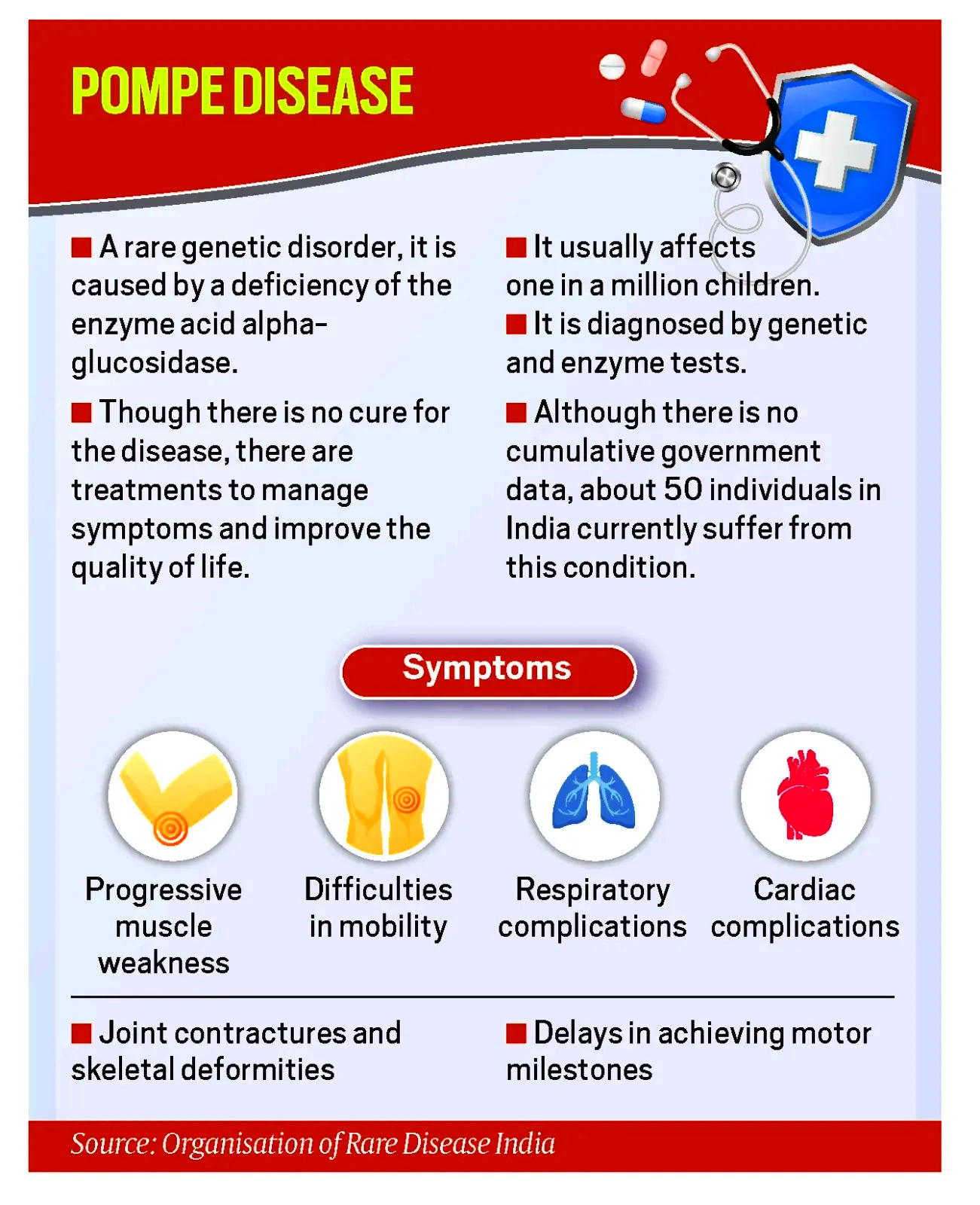Context: Recently, India’s first Pompe disease patient passed away after battling the disease.
Pompe Disease: What is it? Its Symptoms and Prevalence
Pompe Disease: Also known as Glycogen Storage Disease Type II, is a rare genetic disorder caused by a deficiency of the enzyme Acid alpha-glucosidase (GAA).
-
- GAA: This enzyme is crucial for breaking down glycogen into glucose within the lysosomes of cells.

- Prevalence: Its prevalence estimates range from 1 in 40,000 to 1 in 300,000 births. It occurs across diverse ethnicities and populations with varying ages of onset and severity.
- Symptoms of Pompe Disease:
- Muscle Weakness: Progressive muscle weakness affects both skeletal and smooth muscles, leading to difficulties in mobility and daily activities.
- Motor Skill Delay: Children with the disease may experience delays in achieving motor skills, such as sitting, crawling, and walking.
- Degenerative Impact on Bones: Prolonged muscle weakness and reduced mobility can degenerate bones, leading to joint contractures and skeletal deformities.
- Respiratory Complications: Due to the weakening of respiratory muscles, patients may experience shortness of breath, respiratory infections, and even respiratory failure.
- Hypertrophic Cardiomyopathy: It is characterized by the thickening of the heart muscle walls. This can lead to impaired heart functions and cardiovascular symptoms.
- Curability: While there is currently no cure for Pompe disease, there are treatment options available to manage symptoms and improve the patient’s quality of life.
- Enzyme Replacement Therapy (ERT) is a standard treatment, involving the infusion of the missing enzyme to alleviate glycogen buildup.
About Rare Diseases:
- Rare Diseases: They are characterized by a wide diversity of symptoms and signs that vary not only from disease to disease but also from patient to patient suffering from the same disease.
- Major Problems:
- Due to the low prevalence, medical expertise is rare, knowledge is scarce, care offerings inadequate and research limited.
- Rare disease patients are the orphans of health systems, often denied diagnosis, treatment, and the benefits of research.
- Rare diseases not only affect the person diagnosed, but they also impact families, friends, caretakers and society as a whole.
Must Read: Production Of Drugs To Counter Rare Diseases |
News Source: IE
![]() 8 Dec 2023
8 Dec 2023
